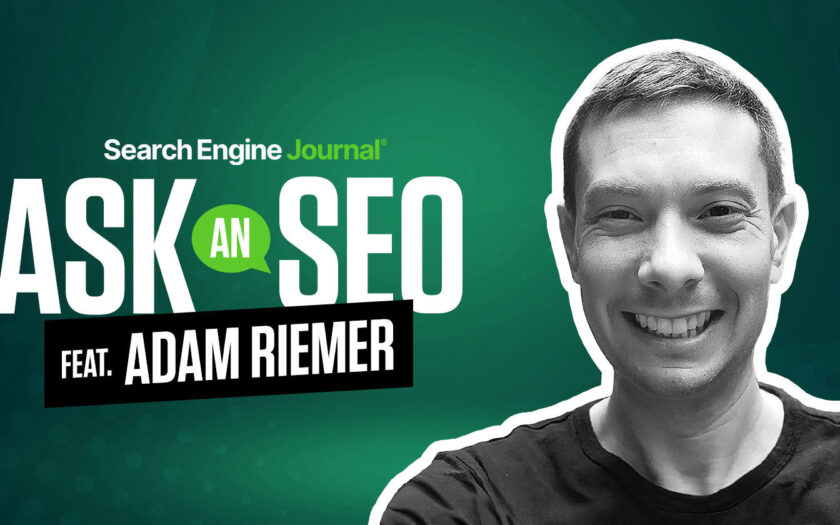This week’s Ask an SEO column comes from an anonymous asker:
“What should a backlink profile look like, and how do you build good backlinks?”
Great question!
Backlinks are a part of SEO as a way to build trust and authority for your domain, but they’re not as important as link builders claim.
You can rank a website without backlinks. The trick is focusing on your audience and having them create brand demand. This can be equal in weight to backlinks but drives more customers.
Once you are driving demand and have created solid resources, backlinks start occurring naturally. And when you have an active audience built from other channels, you can survey them to create “link worthy” pages that can result in journalists reaching out.
With that said, and when all else is equal, having the trust and authority from a healthy and natural backlink profile can be the deciding factor on who gets into the top positions and who gets no traffic.
A healthy backlink profile is one that appears to be natural.
Search engines, including Google, expect a certain amount of spammy links from directories, website monitoring tools, and even competitors that spam or try to do a negative SEO attack. These are part of a healthy backlink profile.
What is unnatural is when your website or company has done nothing to earn an actual link.
When there is nothing noteworthy, no original thought leadership or studies, or something that goes viral and the media covers, there’s no reason someone would ever have linked to you.
Having backlinks for no reason would likely be considered an unhealthy link profile, especially if they’re mostly dofollow.
Healthy link profiles contain a mix of dofollow, nofollow, sponsored, and mentions from actual users in forums, communities, and social media shares.
Unhealthy backlink profiles are where a website has links from topically irrelevant websites, when the articles have mentions of big brands and “trustworthy” or “high authority” sites, and then randomly feature a smaller company or service provider with them.
It’s an old trick that does not work anymore. Unhealthy link profiles also include private blogger networks (PBNs), link farms, link wheels, link networks, and where the sites have a high domain authority (DA), Authority Score (AS), etc.
Bonus tip: DA, AS, and other metrics are not used by search engines. They are scores that third-party SEO tools created and have absolutely no say when it comes to the quality of a website or backlink.
If someone is telling you high DA is good and Google trusts these sites, they’re selling you snake oil.
Although backlinks are not as important as they used to be, backlinks still matter. So, if you’re looking to build some, here are a few strategies to try, avoid, and tread lightly with.
Scholarship, Grants, And Sponsorships
These don’t work. Google knows you’re offering them to get .edu links, and in rare cases .gov links. And definitely from charities and events.
It’s easy to map back to who paid or bought them, and these likely won’t count for you SEO-wise.
If they make up the majority of your links, you should expect them to be neutralized by the search engines or to get a manual action against your site for unnatural link building in Search Console from Google.
If you’re doing a sponsorship, ask for the website being sponsored to place “sponsored” instead of “nofollow.”
And if you’re doing a scholarship or grant, feature the winner on your site, provide a full education and follow up about them, and have them share their story for the next few years in a monthly or quarterly column on your blog.
If you genuinely want to do good, share their story and progress. Otherwise, it was just for getting backlinks, and that works against you.
Citations And Broken Links
When you get mentions in the media, or a competitor has a naturally occurring link to a study, but it goes to a broken page, this is a good way to build a natural link. Reach out to these sites and ask them to link to your study instead.
You can mention their visitors are currently hitting a dead page if it’s a broken link, and present your study or resource, which is of equal or better value. Or share that yours has been updated where the current source is outdated and no longer applies.
For citations where nobody has a link, try letting the website owner know it saves the user a trip to a search engine to find another answer. And when they have a good experience on the website, they’re likely to come back for more information.
Topically Relevant PR
I’m a big believer in PR to acquire backlinks naturally. But you have to do things that make sense for your business.
